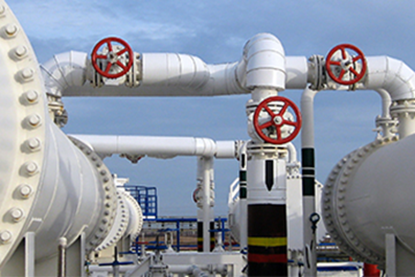You have no items in your shopping cart.
All Courses
Lead Poisoning (Spanish)
La exposición al plomo puede causar efectos graves en la salud, por eso es importante que entienda cómo protegerse y lo que puede hacer si cree que ha sufrido sobreexposición al plomo. Este curso es ideal para las personas que pueden estar expuestas al plomo en la industria general o entornos de construcción.
$29.95
Line Breaking (US)
Line breaking is an extremely hazardous task that can cause chemical exposure and injuries due to the extreme pressure in lines. It is important that you know what safety guidelines you can follow to minimize your risk. Take this course to learn more! Ideal learners are any employees in an industrial work environment who manage, use or process chemicals, particularly those with hazardous chemical operations.
$29.95
Line Breaking (US) (Canadian French)
Le bris de conduite est une tâche extrêmement dangereuse qui peut causer une exposition à des produits chimiques et des blessures causées par la pression extrême dans les conduites. Il est important de connaître les directives de sécurité à suivre afin de minimiser les risques. Suivez ce cours afin d’en apprendre davantage! Les étudiants idéaux sont les employés dans un environnement de travail industriel qui gèrent, utilisent ou traitent les produits chimiques, particulièrement ceux avec des opérations chimiques dangereuses. Line breaking is an extremely hazardous task that can cause chemical exposure and injuries due to the extreme pressure in lines. It is important that you know what safety guidelines you can follow to minimize your risk. Take this course to learn more! Ideal learners are any employees in an industrial work environment who manage, use or process chemicals, particularly those with hazardous chemical operations.
$29.95
Line Breaking (US) (Portuguese)
A abertura de tubulação é uma tarefa extremamente perigosa que pode causar exposição química e ferimentos devido à pressão extrema nas tubulações. É importante que você saiba quais diretrizes de segurança seguir para minimizar o risco. Faça este curso para aprender mais! Os aprendizes ideais são funcionários de um ambiente de trabalho industrial que gerenciam, usam ou processam produtos químicos, especialmente com operações químicas perigosas. Line breaking is an extremely hazardous task that can cause chemical exposure and injuries due to the extreme pressure in lines. It is important that you know what safety guidelines you can follow to minimize your risk. Take this course to learn more! Ideal learners are any employees in an industrial work environment who manage, use or process chemicals, particularly those with hazardous chemical operations.
$29.95
Line Breaking (Spanish)
La interrupción de líneas es una tarea extremadamente peligrosa que puede ocasionar exposición a químicos y lesiones debido a la presión extrema en las líneas. Es importante que conozca qué pautas de seguridad puede seguir para minimizar su riesgo. ¡Tome este curso para aprender más! Los estudiantes idóneos son los empleados de un ambiente de trabajo industrial que manejen, usen o procesen químicos, particularmente aquellos con operaciones químicas peligrosas. Line breaking is an extremely hazardous task that can cause chemical exposure and injuries due to the extreme pressure in lines. It is important that you know what safety guidelines you can follow to minimize your risk. Take this course to learn more! Ideal learners are any employees in an industrial work environment who manage, use or process chemicals, particularly those with hazardous chemical operations.
$29.95
Lithium-Ion Battery Awareness
Lithium-ion batteries, like the ones that power your portable electronics, are finding favor over traditional lead-acid batteries. These batteries offer many advantages but pose huge risks if not handled correctly. Take this course to make yourself aware of how to safely use lithium-ion batteries on and off the job. This course is ideal for everyone and all industries.
$29.95






